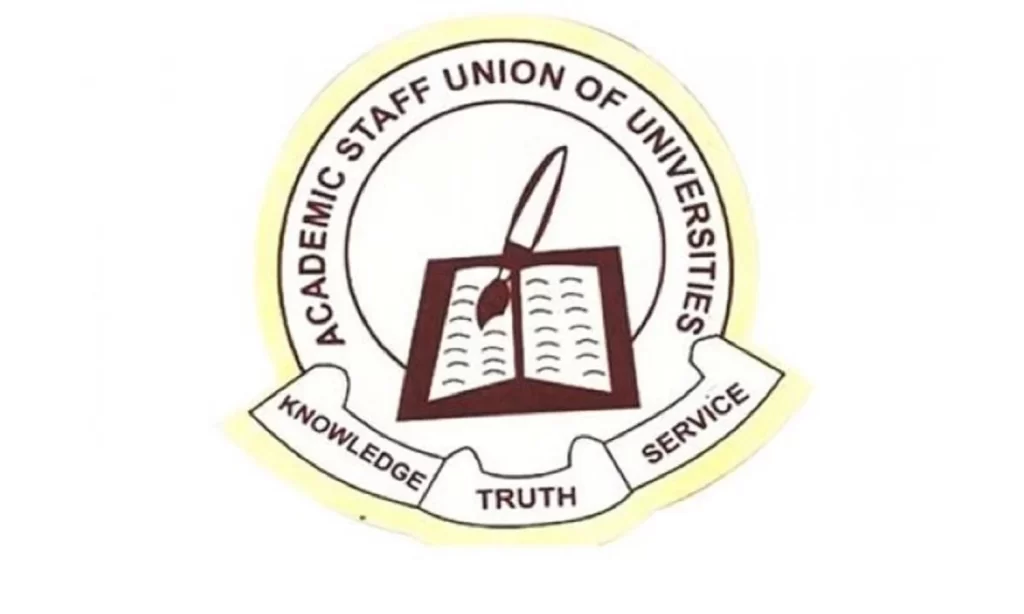The Academic Staff Union of Universities (ASUU) has called on the Federal Government to show genuine commitment to the ongoing renegotiation process, warning that failure to prioritise education could have “grievous consequences” for the nation’s future.
The union made the call in a communiqué issued at the end of its National Executive Council (NEC) meeting held at Taraba State University, Jalingo, on November 8 and 9, 2025.
ASUU’s President, Prof. Christopher Piwuna, who signed the statement titled “Prioritise Education, Protect the Future,” accused the government of taking a “back-and-forth” approach to negotiations, a move he described as “counterproductive and capable of derailing progress.”
“It is now the responsibility of government to take advantage of this opportunity to quickly resolve all the issues in order to keep our children in school,” Piwuna said.
“We hope that our expectations—and indeed the expectations of Nigerians for a quick and holistic resolution—are not dashed.”
He reminded Nigerians that ASUU had suspended its warning strike on October 21, 2025, out of respect for students, parents, and other Nigerians who appealed for dialogue, despite describing the government’s offers as “grossly insufficient.”
“We decided to suspend the strike to reciprocate the goodwill and support of Nigerians. NEC believed that a one-month window would be sufficient to conclude renegotiation if the gesture was reciprocated in good faith by government,” he added.
However, the union expressed disappointment that two weeks after the suspension of the warning strike, the government has made little progress on key issues.
According to the NEC, the proposed salary increment from the government was “a mere drop in the ocean” and “incapable of reversing the brain drain syndrome that has bedevilled Nigeria’s universities for decades.”
“While gaps are being closed in some non-monetary aspects of the agreement, the salary and conditions of service components remain a sore point that needs a radical approach,” the statement noted.
ASUU also condemned what it called “misrepresentation” of facts by government officials, accusing them of undermining the negotiation process by “framing part payment of promotion arrears and release of third-party deductions as substantial achievements.”
“These gestures are, at best, confidence-boosting exercises and must not be framed as the real issues. The framing of government’s implementation is not the true reflection of reality. This strategy casts doubt on the fidelity of its proposals,” Piwuna warned.
The union further faulted the government’s approach to education funding, describing it as “a reflection of misplaced priorities.”
“Government perceives education as a commercial good that must be self-sustaining instead of a social good that guarantees sustainable national development,” the communiqué read.
“Education as the bedrock of any society deserves special attention, more so in Nigeria given the deficit in our education infrastructure.”
Backing its position with financial data, ASUU said recent revenue allocations to federal and state governments show that the issue is not lack of funds but lack of political will.
“According to data from the Federation Accounts Allocation Committee, states received ₦3.92 trillion in 2022 and ₦5.81 trillion in 2024—an increase of over 62 percent.
“The Federal Government’s allocation rose from ₦3.42 trillion in 2022 to ₦4.65 trillion in 2024, representing over 70 percent increase. Clearly, economic factors are not the problem; political will is,” the union insisted.
ASUU urged traditional rulers, labour unions, student bodies, and civil society organisations to continue to pressure the government into honouring its commitments.
“We call on all traditional rulers, leaders, students, the Nigeria Labour Congress and civil society to keep urging government to do the right thing and give lecturers a living wage,” Piwuna said.
“The surest way to protect the future of our country is to invest in education.”
The union concluded by warning that the government must use the remaining days of the one-month negotiation window “judiciously” to reach a “holistic resolution,” stressing that the patience of Nigerian academics and the public should not be taken for granted.
Do you want to share a story with us? Do you want to advertise with us? Do you need publicity for a product, service, or event? Contact us on WhatsApp +2348183319097 Email: platformtimes@gmail.com
We are committed to impactful investigative journalism for human interest and social justice. Your donation will help us tell more stories. Kindly donate any amount HERE




